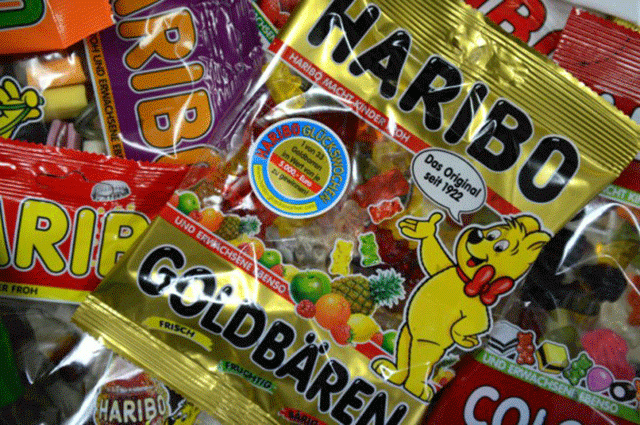Sweet justice: Lindt beats Haribo in gummy bear court battle
Haribo took Lindt to court after the Swiss chocolatier began selling their "Lindt Teddy" figurines

Haribo took Lindt to court after the Swiss chocolatier began selling their "Lindt Teddy" figurines. PHOTO: AFP
"Lindt's sale of bear-shaped chocolates wrapped in a golden foil with a red ribbon is neither a violation of Haribo's 'Gold Bear' trademark nor an illegal imitation of the fruit gum products," the court ruled.
The German candy manufacturer had taken Lindt & Spruengli to court in 2012 after the Swiss chocolatier began selling their "Lindt Teddy" figurines in 2011 for the Christmas season.
Haribo claimed that the gold-foil packed Lindt teddies were an imitation of the gold colour bear illustration -- which also features a red ribbon around its neck -- on its jelly bear packaging.
The Swiss company argued however that the teddy bear figurines were inspired by its best-selling "Gold Bunny" chocolates, which are also wrapped in a golden foil and decorated with a red ribbon and a little bell.
The bunnies were first produced in 1952, and are best-sellers during the Easter season.
A German court had initially ruled in favour of Haribo but an appeal court threw out that verdict, finding that the chocolate teddies could not be mistaken for Haribo's jelly sweets.
To end the dispute, the case was then brought to the Federal Court of Justice for a final ruling.
For the court, the chocolate teddies bore no resemblance to the much smaller jellies.
The 2-centimetres tall gummy bear has become the best-known product of Haribo, a company created in 1920 in the western city of Bonn.
First sold in its current form in 1967, about 100 million such bears are now produced daily.
Lindt meanwhile claims on its website that its teddy "sets ... more than 60 million hearts racing" every year.
Lawsuits over product trademarks are often brought in Germany, where the justice system is generally viewed as offering strong protection against violations.
Also on Wednesday, the same court issued a ruling on a dispute brought by Germany's Sparkasse savings banks against Spain's giant Santander over the red colour used on their logos.
The German bank claims it has the exclusive right to that tint in Germany.
But the court ruled that the case needs to be heard again on appeal.
In another similar case, Beiersdorf has been arguing before German courts that the blue colour used on its Nivea cream tin boxes cannot be used by rival Unilever in its products.



















COMMENTS
Comments are moderated and generally will be posted if they are on-topic and not abusive.
For more information, please see our Comments FAQ